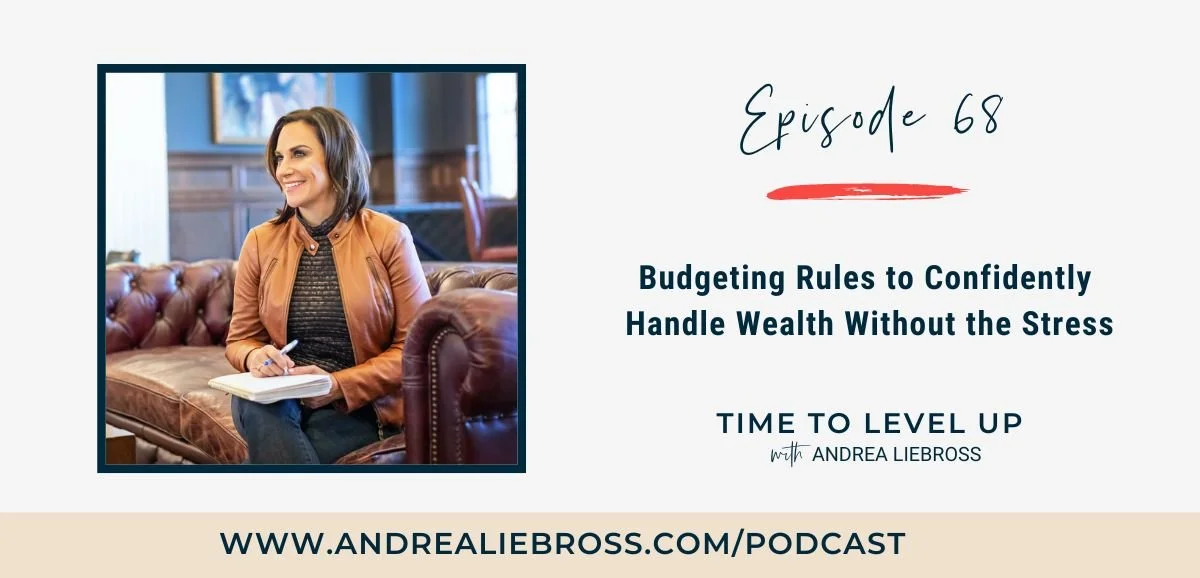68: Four Simple Rules for Wealth Without Stress
Money. Budgets. Saving. Spending. Anything to do with budgeting stresses so many women out to the point where they fear looking at their bank accounts! I want to change that and empower you to rewrite your personal relationship with money, wealth, and budgeting. This is the key to confidently handle wealth without the stress.
In this episode, I talk about the rules of budgeting to follow so you can raise your money confidence and have money work for you and your business, now and in the future.
In Today’s Episode We Discuss:
3:07 - Why you’ll still want to listen to this episode even if you think you don’t need help with money or budgeting
6:22 - How I used to think I’d create wealth and manage money
9:08 - Why you should forget everything you’ve heard about budgeting
11:06 - How your budget is simply a map of your priorities
14:55 - The 1st rule to follow when it comes to budgeting
24:10 - The 2nd budgeting rule you must follow
31:21 - The final rule of budgeting
35:39 - Other important things you need to know about budgeting
Mentioned In 3 Budgeting Rules to Confidently Handle Wealth Without the Stress
Other Episodes You'll Enjoy:
Episode 67: “Guilt-Free Spending on Yourself”
Episode 62: “Deciding From Abundance”
[fusebox_transcript]

